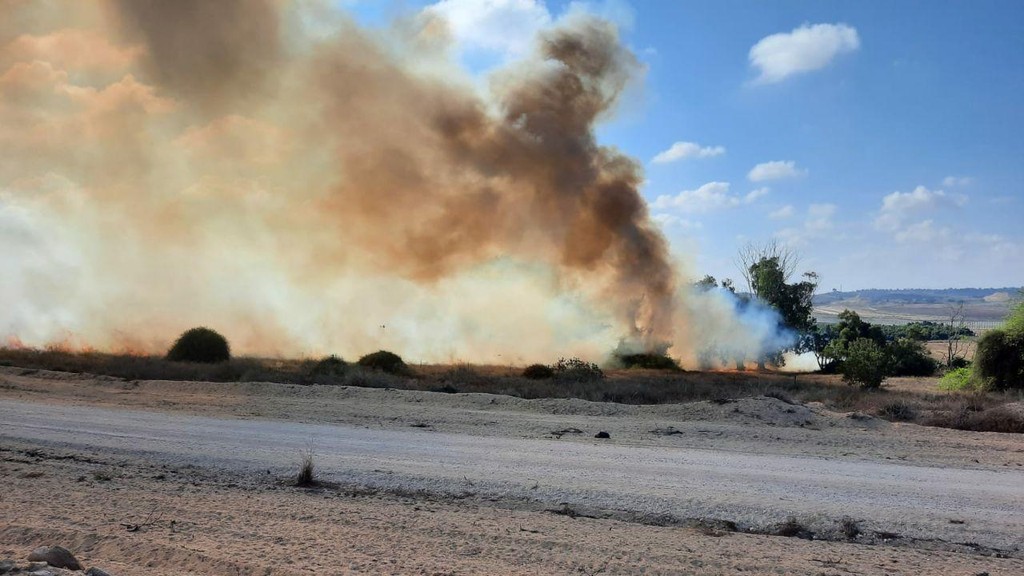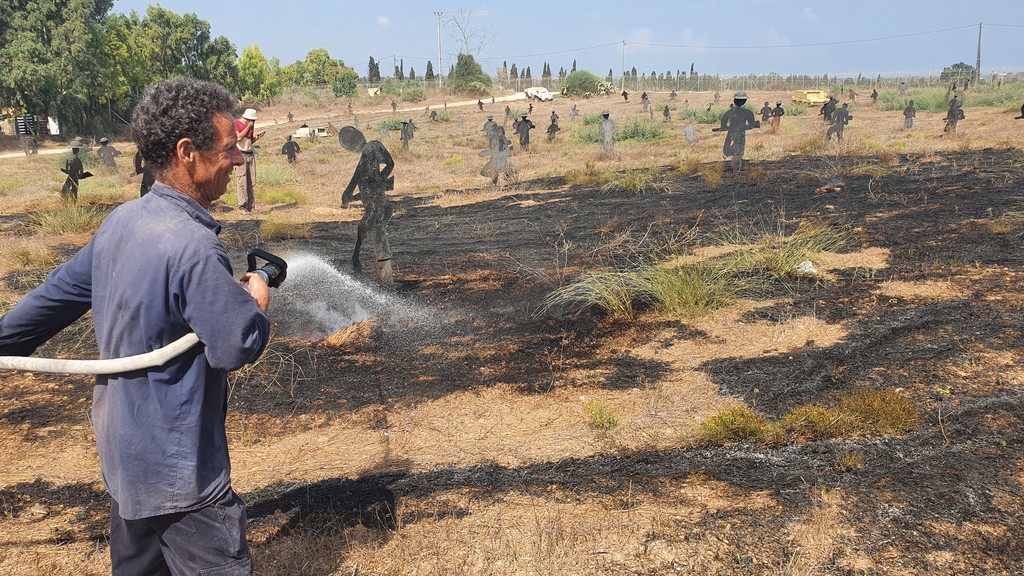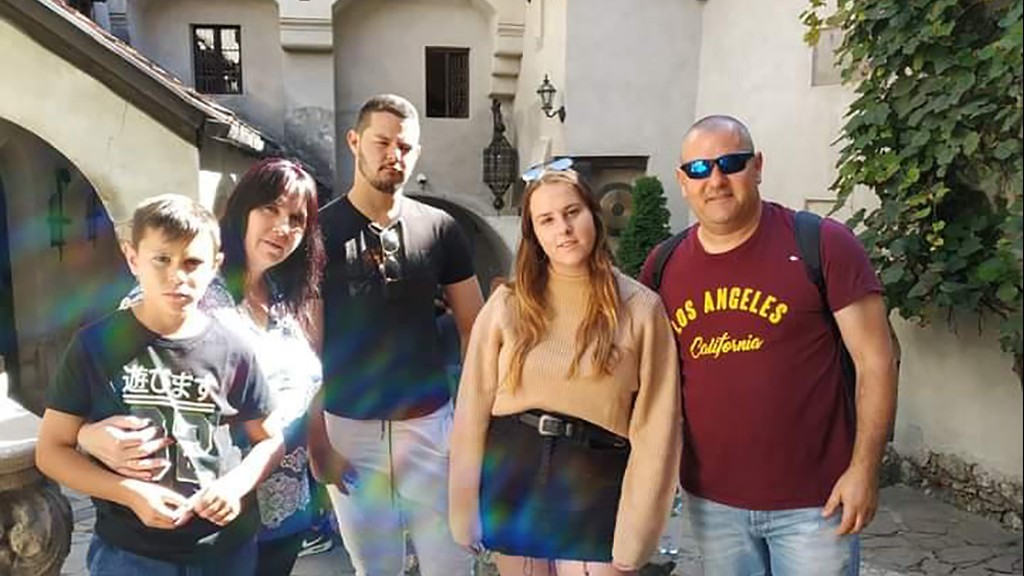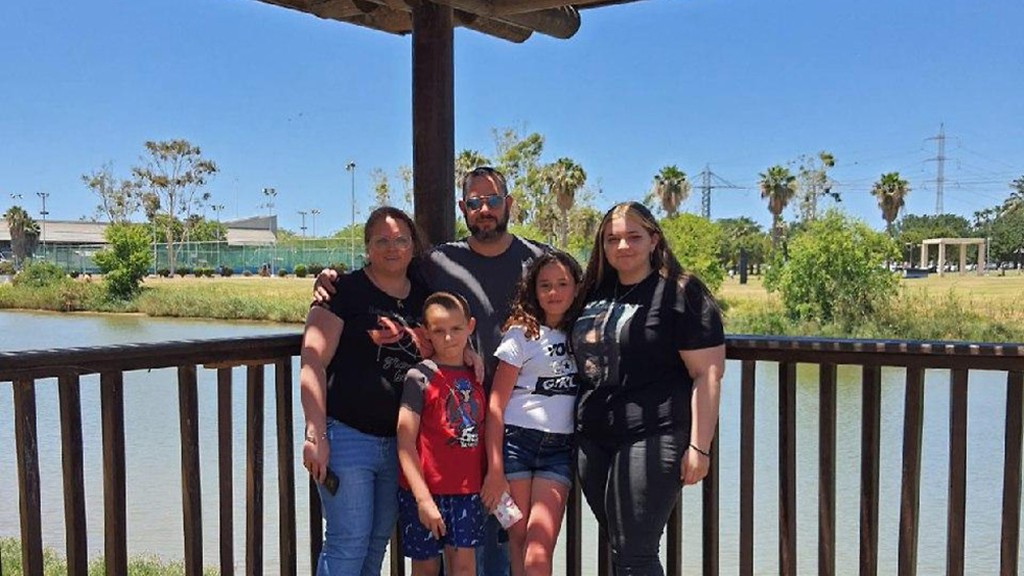Getting your Trinity Audio player ready...
The incendiary balloon attacks, which have sparked fires in Israeli communities bordering the Gaza Strip for eighth day straight, make the local residents worry that another wide-scale escalation is just a matter of time, with less than three weeks until the start of the new school year.
Israel on Thursday said it will stop shipments of fuel into Gaza and struck Hamas positions in the enclave in response to the launching of dozens of helium balloons laden with incendiary material that have torched tracts of farmland on the Israeli frontier.
In addition to the balloon attacks and the ensuing fires, the locals in the area are also dealing with the coronavirus pandemic and uncertainty over the reopening of the upcoming school year on September 1, which is only exasperated by the cross-border violence.
Despite the complex situation and the tensions rising, the residents of the area are quite accustomed to such complex situations.
Amit Kaspi from Kibbutz Kerem Shalom, is a father of three, including of an 11-year-old boy set to start sixth grade on September 1. "We have gotten used to escalation in our area every summer," he said. "As long as there are no missiles and rocket-alert sirens, it's basically 'America' over here. We repress the situation, we just got used to it."
According to Kaspi, years of living near the Strip have prepared him and his family to deal with the dangers of cross-border violence. Currently, the biggest worry are the changes brought upon by the pandemic.
"We are spending more time at home and less outside, so security-wise, we are less worried," said Kaspi. "In the past, before every military campaign, there were preparations made for education and evacuation of families, but they always failed. Even in the first wave of the coronavirus, preparations were made for remote studies, but it pretty much collapsed."
Guy Teitelbaum, another Kerem Shalom resident, is a father of three children, aged 8, 11 and 17. According to him, the biggest worry for the residents at the moment at the pandemic.
"I believe our regional council is doing everything it can, and you can see it in the percentage of the infected, but what happens with schools is out of our hands," he said. "It is in the hands of the government that does not know whether it will remain in office by tomorrow morning."
5 View gallery
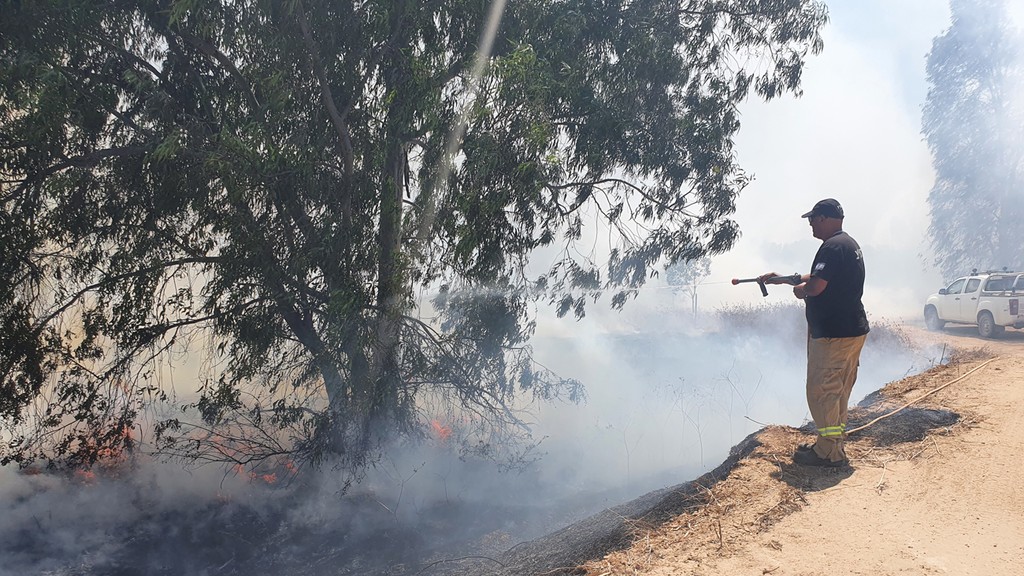

Firefighting teams extinguishing a fire started by an arson balloon
(Photo: Courtesy)
According to Teitelbaum, the local residents were prepared much worse for the coronavirus than the renewed escalation across the Gaza border. "As long as we are not caught in another round of fighting, I do not think our children should be treated any different from the rest of the country."
Meirav Cohen, a mother of four from Kibbutz Ein HaShlosha, said the lack of a clear government outline regarding the reopening of schools presents the biggest challenge. "We are waiting to know what the outline of the school year will be, the security situation is disturbing, but at least I can be in denial about it. We currently just want to see what the Education Ministry's outline will be."
Shlomzion Cohen, the principal of the Alonim Elementary School in the Sha'ar Hanegev Regional Council, said the educational staff of the schools in the communities is adapting both to dealing with the virus and the security risk.
"Emergency and teaching staff do quite a bit to offer as much help as possible to the children," said Cohen, "but it is impossible to completely shelter the children from these experiences."
According to Cohen, the region's educational teams, "create resilience through positive experiences - of success, pleasure and excitement. Distance between people can be reduced in many ways, and that is what the coronavirus crisis has taught us."


